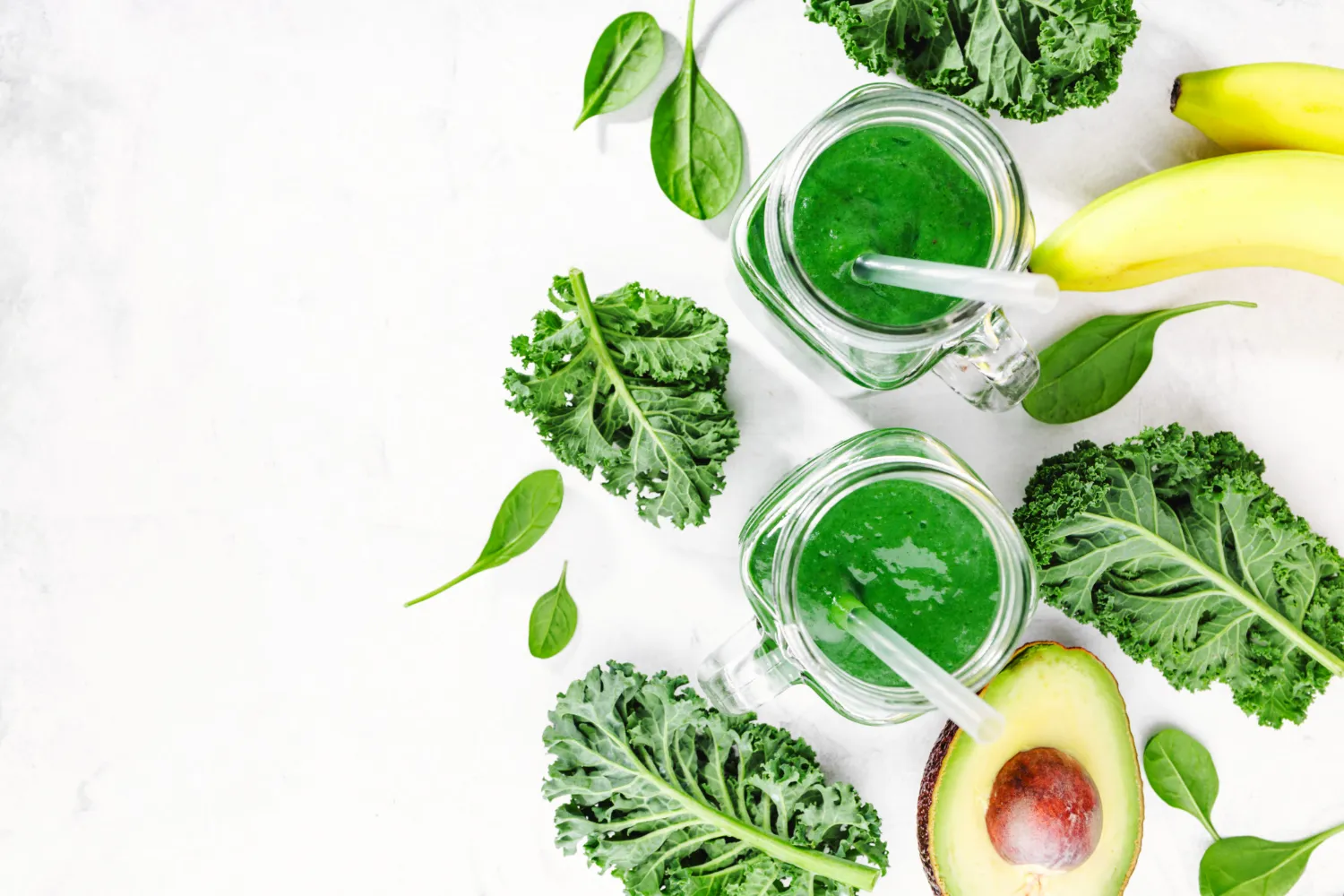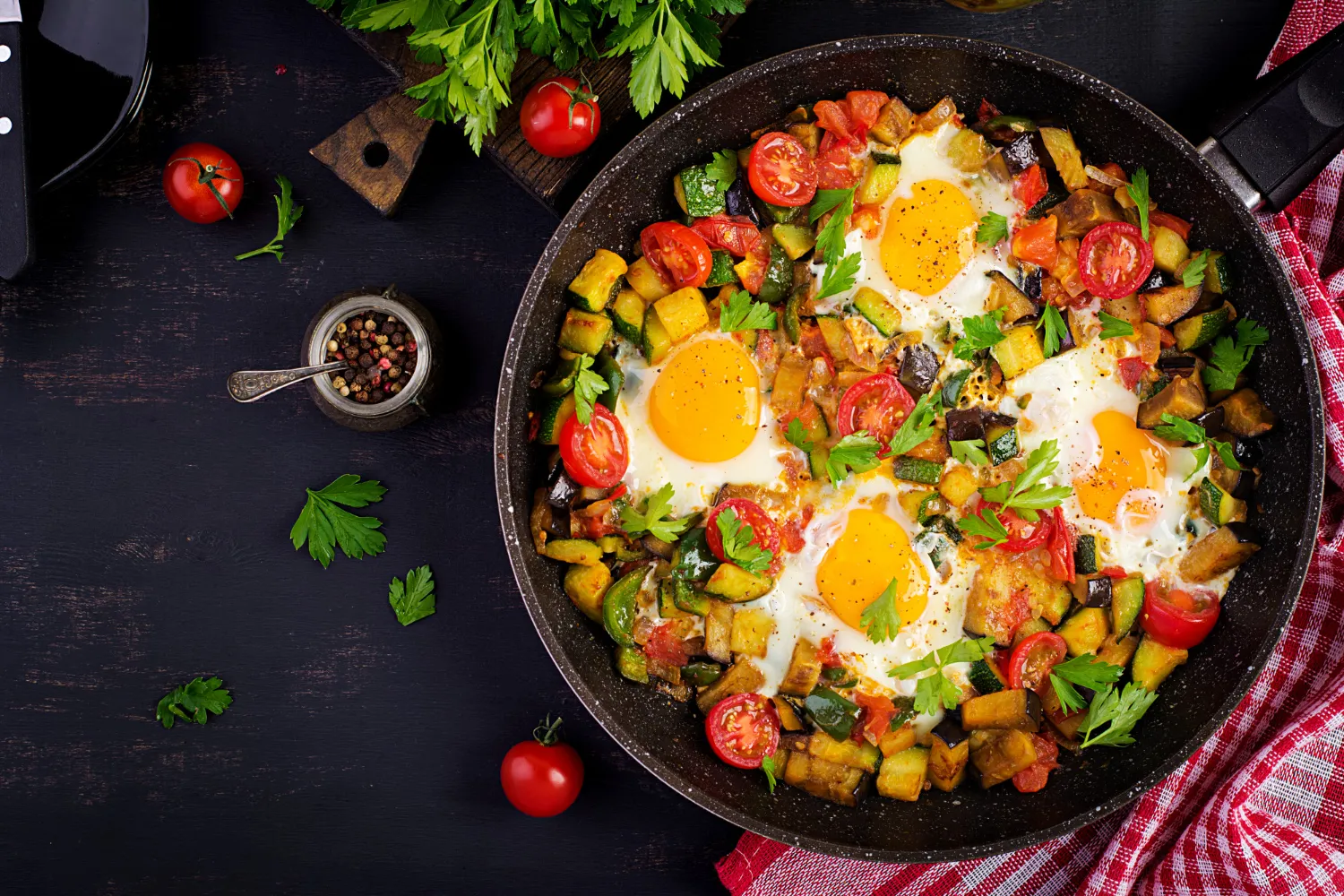If you’re a woman over 40 you will likely be aware of the impact declining estrogen has on physical and mental health before and after the big 4-0.
Symptoms such as increased appetite, weight gain, and gut-related issues, make a considerable impact. This is also met with feelings of fatigue, mood changes, impaired, cognition, and vasomotor symptoms (hot flashes, night sweats), impairing quality of life.
Fortunately, alternating nutrition can alleviate symptoms, with one being the bean diet, a plant-based diet that can support gut health, and hormones, and stabilize energy levels.
In this article, we explore the 7-day bean diet for women, covering why you should be eating beans, how to balance macronutrients, anti-bloating tips, and how to make it work over 40.
Why Beans Deserve a Spot on Your Plate — Especially After 40
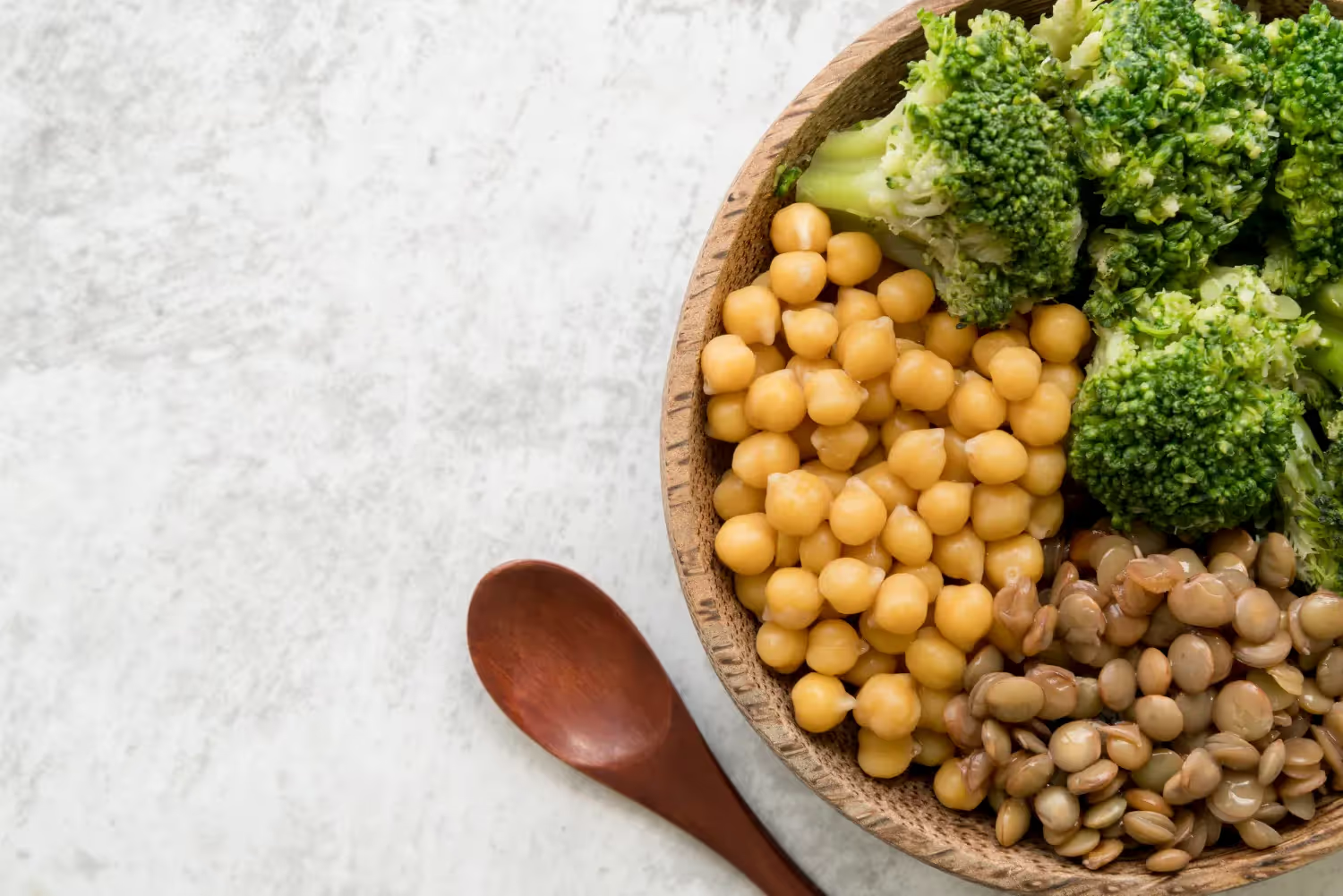
Beans are packed with essential vitamins and minerals, including protein and fiber which make them great for weight loss and gut health. Below we highlight the benefits to show you exactly why they are below on your plate.
Nutrient Density, Fiber, and Affordable Protein
Beans are an incredible source of dietary fiber and protein. For example, 100 grams of black beans contains 47.9 g of carbohydrates, 15.2 g of fiber, and 21.6 g of protein, contributing to a large portion of your daily fiber and protein intake.
Sources also show that they are a rich source of potassium, manganese, iron, magnesium, and B vitamins while containing little fat or sodium. These result in benefits lower cholesterol, triglycerides, blood pressure, heart rate, and inflammation while improving gut health and insulin sensitivity.
How Beans Support Hormonal Health
Bean’s nutrient density can support hormone health. A 2013 study explored the effects of brown beans on appetite-regulating hormones and found that they lower blood glucose and insulin responses while suppressing the hunger hormone ghrelin.
The Gut-Bean Connection: SCFAs and Estrogen Detox
Beans have a special connection with the gut, improving digestive health. Sources explain that beans contain short-chain fatty acids (SCFA) which are the primary metabolites produced in the colon by bacterial fermentation of fiber and resistant starch.
The study explains that SCFA is involved in GI physiology, immune function, metabolism, and the development and regulation of the central nervous system (CNS).
Meanwhile, beans can contribute to estrogen detox. Sources show that estrogen is a steroid hormone associated with female reproductive organs and sexual characteristics. It plays a role in the tissue of the breast, uterus, vagina, bone, and cardiovascular system.
However, when estrogen levels are too high it can increase the risk of cancer, disrupt the reproductive process, contribute to polycystic ovary syndrome, and affect mood, and cognitive function.
Sources suggest fiber binds to estrogen in the gut eliminating it through the stool, supporting hormone balance, and reducing the risk of the above issues.
Is It Safe to Eat Beans Daily?
Beans are well known for their health benefits, but are they safe to consume daily? Below, discuss the misconceptions surrounding best, how to prepare them, when to tweak preparation, and when to pause eating them.
Myths About Lectins and Antinutrients
Beans contain both lectin and antinutrients, which many believe are harmful to their health. However, this is not entirely true.
Antinutrients such as lectins are proteins found in plants and have positive and negative effects on nutrition. For example, they can help protect against certain cancers and boost the immune system, however, like lectin, they can decrease. However, when they are consumed raw they can affect absorption and can result in digestive issues such as nausea, vomiting, and diarrhea.
Fortunately, negative effects can be decreased by methods. Sources show that methods such as overnight soaking, boiling, steaming, and soaking, all which are applied before the canning process.
How to Prepare Beans for Better Digestion
Beans require a little extra prep to allow for better digestion. As mentioned, this can be done by soaking, boiling, or cooking thoroughly. Below, we list the details of how to prepare fresh beans to improve digestion.
- Overnight Soaks — Using a container, cover them with water and allow them to soak overnight.
- Long Soak — Boil beans for a few minutes, remove from heat, and allow them to soak for four hours.
- Quick Soak — Bring to boil; remove from heat and allow them to soak for an hour.
- Cooking — Cook until they are soft and tender.
- Low Heat — Placing on low heat can help break down sugars, making them more digestible.
- Add Digestive Spices — Add spices such as ginger, cumin, or fennel during cooking to improve digestion.
When You Might Need to Tweak or Pause
The high fiber content of beans means they are incredible for our health. However, this can make them difficult to digest, leading to bloating and even discomfort in some individuals.
If you have never or rarely eaten beans, consider introducing them slowly to your diet. This will reduce bloating. Similarly, if you have digestive issues (Irritable Bowel Syndrome or Crohn’s) and are feeling these effects from your current serving size, consider reducing your intake.
7-Day Bean Diet for Women
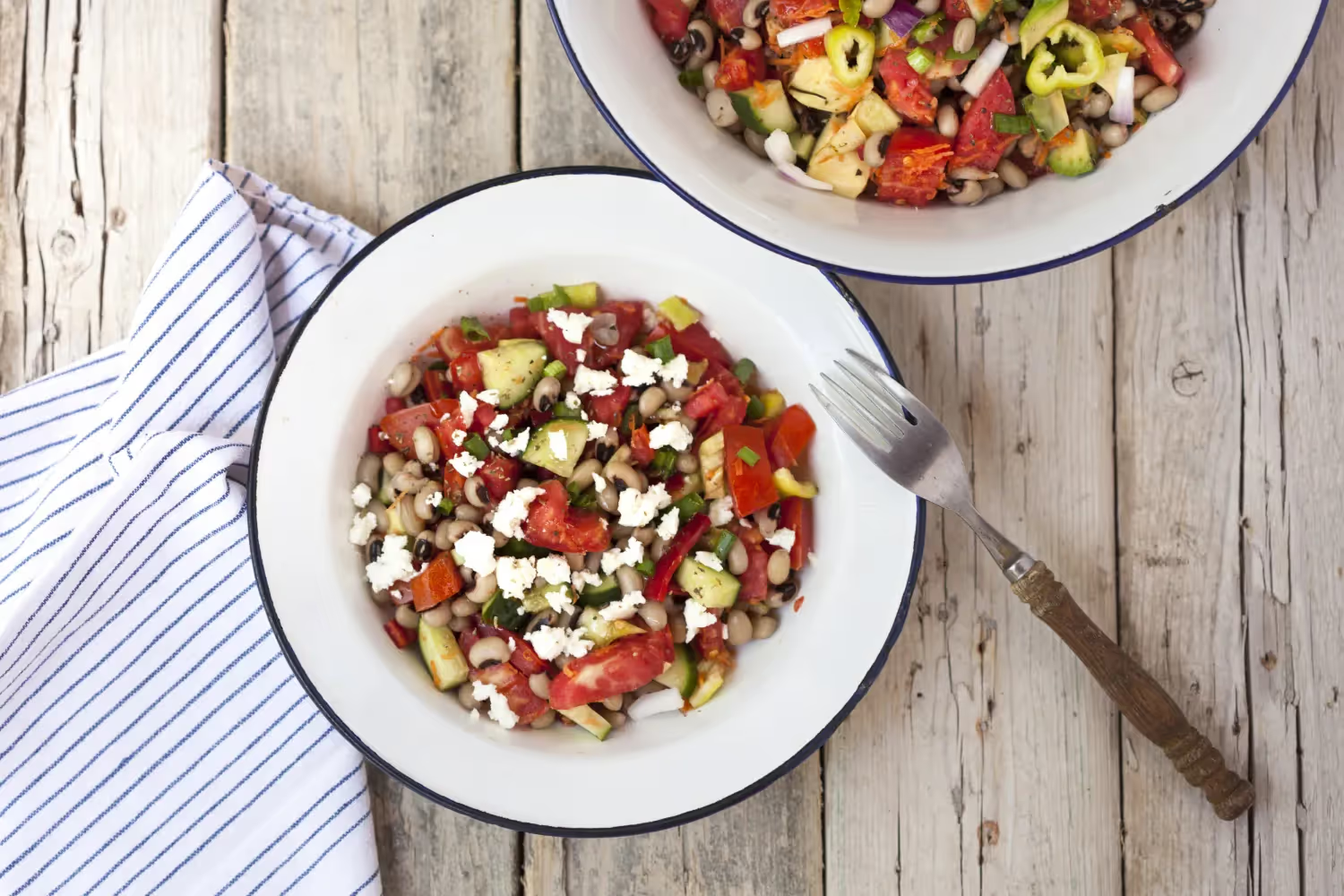
Now that we have highlighted the incredible benefits of beans and how to prepare them, it's time to discuss the 7-day bean diet for women. Below, we list 28 high-fiber and protein meals, including breakfast, lunch, dinner, and snacks.
Day 1
Breakfast
- White beans on garlic sourdough bread with canned white beans, diced tomatoes, red onion, garlic, paprika, and olive oil.
Lunch
- Mediterranean bean salad with kidney beans, chickpeas, red onion, celery, cucumber, chopped parsley, fresh dill, and extra-virgin olive oil.
Dinner
- Sweet potato and black bean chili with diced onion, diced tomatoes, garlic, ground cumin, cumin, olive oil, lime juice, and chopped cilantro.
Snack
- Roasted chickpeas with olive oil, paprika, garlic powder, and salt.
Day 2
Breakfast
- Veggies and bean breakfast hash with cubed potatoes, baby spinach, zucchini, pumpkin, mushrooms, chili flakes, garlic powder, onion powder, chili flakes, olive oil, salt, and pepper.
Lunch
- Black bean salad with corn, red pepper, cherry tomatoes, chopped red onion, and cilantro.
Dinner
- Lentil and veggies stir-fry with carrot, bell peppers, broccoli, grated ginger, garlic, soy sauce and olive oil
Snack
- Shelled edamame with sea salt.
Day 3
Breakfast
- Sweet Potato, black bean, and avocado breakfast burrito with eggs, low-fat cheese, and enchilada sauce on a whole wheat tortilla.
Lunch
- Salad — Bean salad with chopped red onion, capers, cucumber, dried oregano, and chopped parsley.
- Dressing — red wine vinegar, dijon mustard, honey, extra-virgin olive oil, salt and pepper
Dinner
- Pinto Bean Quesadillas with low-fat cheese, onion, peppers, and chili powder, on whole-grain tortillas
Snack
- Soy nuts, raisins, dried fruit, and sunflower seeds
Day 4
Breakfast
- Black bean and avocado with chopped onion, cumin, paprika, garlic, olive oil, and cilantro, served with a fried egg, and Greek yogurt.
Lunch
- Mediterranean lentil bowl with chopped cucumber, cherry tomatoes, red onion, spinach, feta cheese, lemon juice, and olive oil.
Dinner
- Bean and veggies stew with sweet potato, carrot, celery thyme, salt, and pepper.
Snack
- Garlic, lemon. And dill white bean dip with sliced cucumber.
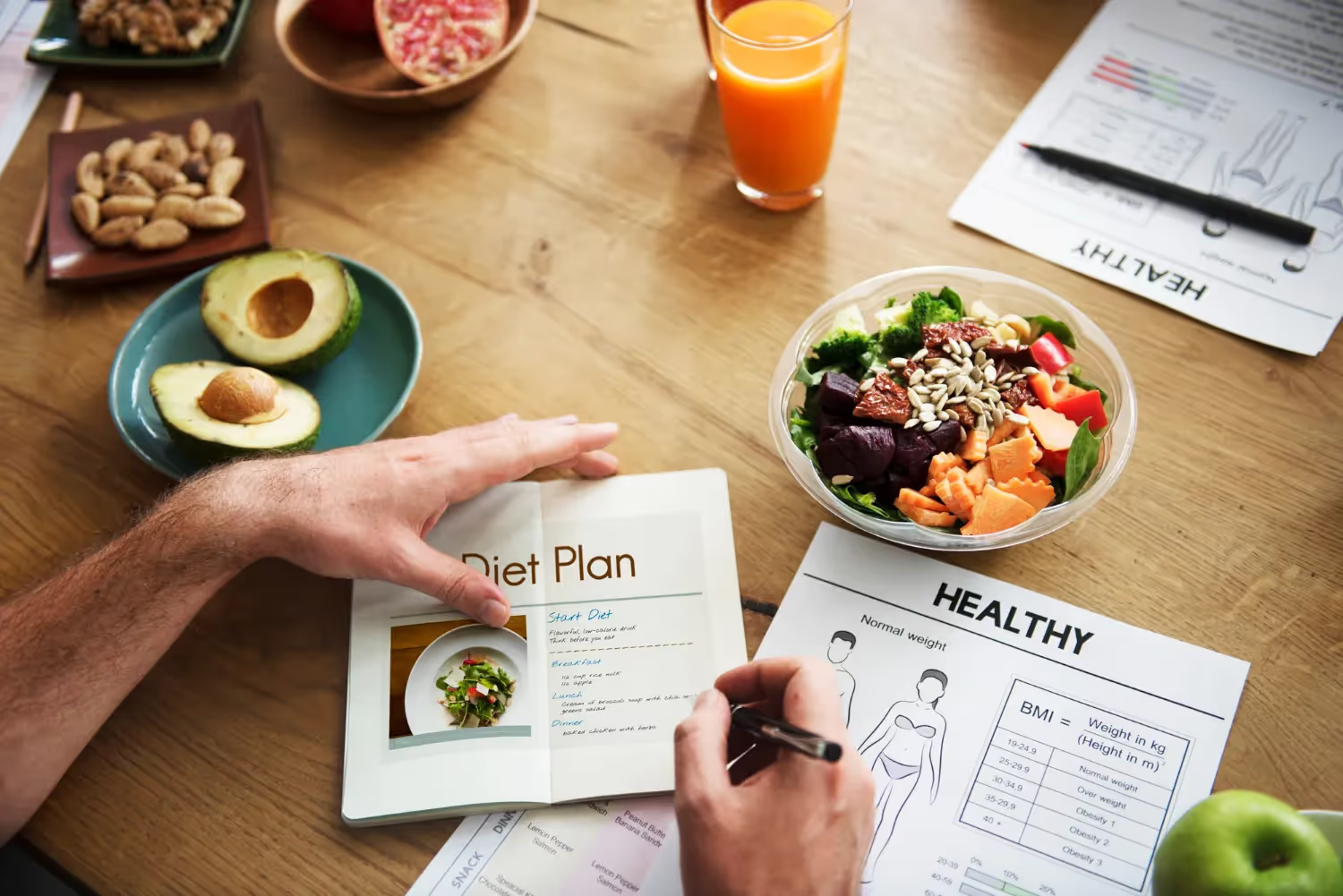
Day 5
Breakfast
- Bean, avocado, and salsa omelet with olive oil, and ground black pepper.
Lunch
- Chickpea salad sandwich with Greek yogurt, Dijon mustard, celery, red onion, salt, and pepper on wholegrain bread.
Dinner
- White bean and tomato pasta with cherry tomatoes, garlic, whole wheat pasta (or gluten-free), and olive oil.
Snack
- Roasted edamame with sesame oil, and sea salt.
Day 6
Breakfast
- Spicy egg and beans breakfast with sourdough bread, chopped red onion, crushed garlic, red chili, smoked paprika, cumin, dried oregano, dried coriander, olive oil, salt and pepper.
Lunch
- White bean and avocado toast with lemon juice, salt, and chili flakes.
Dinner
- Black bean tacos with egg, avocado, shredded lettuce, low-fat cheese, salsa, cumin, smoked paprika, and lime juice, on corn flour tortillas.
Snack
- Bean Bruschetta with white beans, tomato, diced red onion, and basil on a toasted baguette.
Day 7
Breakfast
- Poached egg and bean bowl with cooked barley, red pepper, avocado, chopped scallions, shredded low-fat cheese, hot sauce, ground cumin, chopped cilantro, and avocado oil.
Lunch
- Spicy red lentil soup with diced carrot, minced garlic, cumin, paprika, and veggie broth.
Dinner
- Chickpea coconut curry with chopped onion, minced garlic, chopped spinach, olive oil, and salt.
Snack
- Three-bean salad cup with kidney, chickpea, and green beans in a vinaigrette.
How to Balance Macronutrients on a Bean-Heavy Diet
Balancing your macronutrients during a bean-friendly diet may sound challenging. However, it may be easier than you think. Below we discuss how to adjust your nutrition to meet your daily requirements to form a balanced diet.
Combining Beans with Healthy Fats
Bean’s high protein, carbohydrate, and fiber content make them the perfect pairing for healthy fats. The standard macronutrient ratio is 45–65% carbohydrates, 10–35% protein, and 20–35%.
As we can see, beans cover two major categories, leaving 20–35% of your daily calorie intake to be made up with healthy fats.
Below is a list of foods rich in healthy fats that complement your bean diet.
- Salmon
- Mackerel
- Herring
- Tuna
- Avocado
- Chia seeds
- Flaxseeds
- Walnuts
- Pumpkin seeds
- Olives
When to Add Grains or Greens
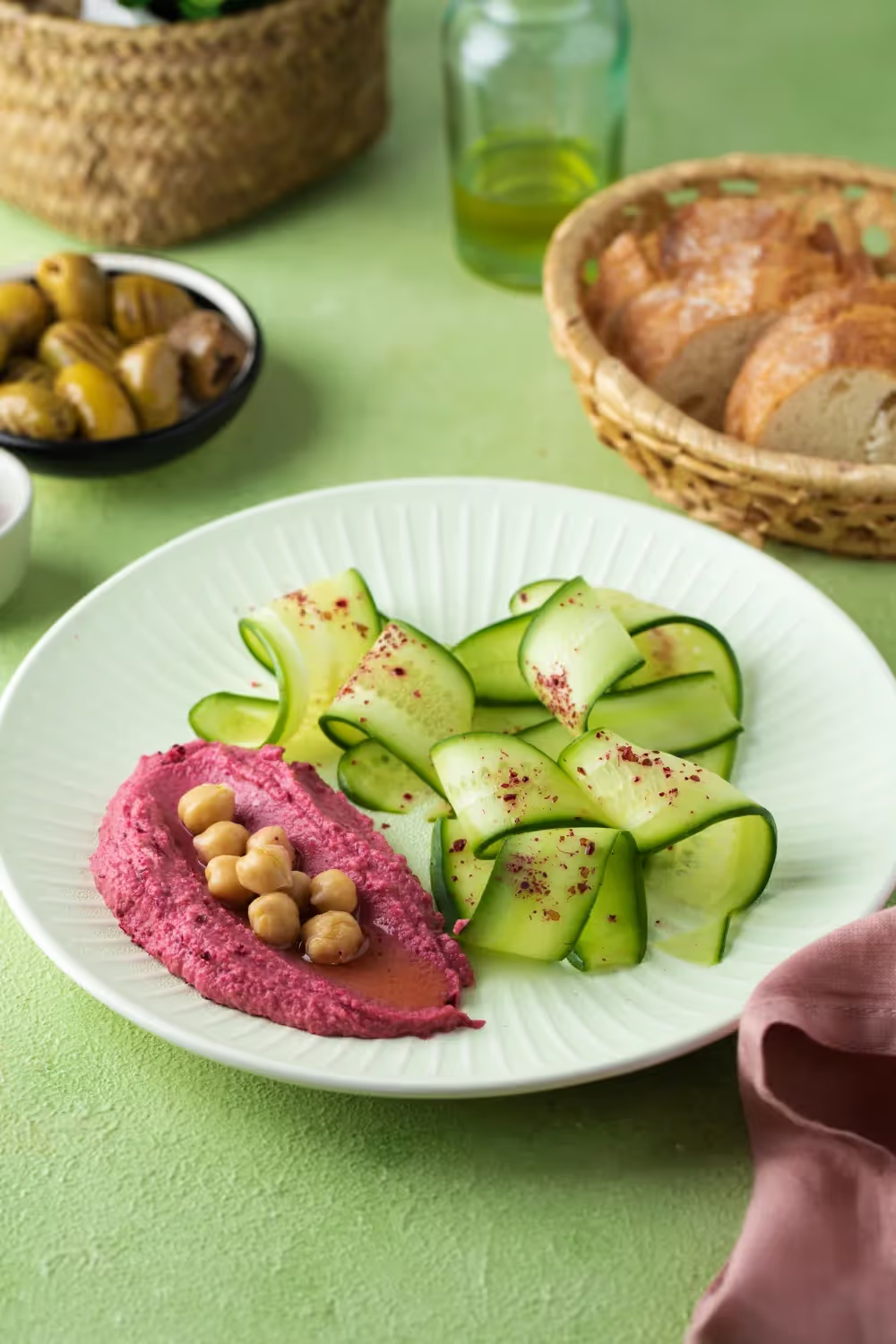
Whole-grains and green are whole foods which compliment the bean diet perfectly. While grains also contain complex carbohydrates and dietary fiber, they can complement meals by adding volume, flavor, texture, and vital nutrients. When adding grains, consider adding them during the cooking process or combining them with your beans at the end.
Greens on the other hand are low calorie, but rich in vitamins and minerals. This means they can be added at any point during food preparation. For example, spinach can be added raw to salads or cooked alongside other ingredients.
Protein Considerations for Active Women
Adding beans to your meals will make hitting your protein targets easier than ever. The recommended daily intake for protein is just 0.8 grams per kilogram of body weight. However, these requirements increase to 1.4–1.6 g/kg for individuals looking to optimize their body for training.
For a woman weighing 70 kg, 0.8 g/kg equates to just 56 grams of protein. The average serving size of beans is approximately ½ cup (75 g) which contains around 16.5 grams of protein, meaning that even one serve of beans makes up more than 25% of their daily protein intake.
Even for active women at 70 kg with a requirement of 1.4 g/kg equates to just 98g of protein daily. Here beans will easily contribute to this protein goal, especially if it is combined with high protein foods such as fish, poultry, nuts, and seeds.
Tips to Avoid Bloating on a High-Bean Diet
If you are not used to eating beans, bloating can occur, making it difficult to continue pursuing the bean diet. Below, we share our top tips to avoid bloating.
Start Slow and Rotate Legumes
The simplest way to avoid bloating when eating beans is to gradually introduce beans and rotate them regularly.
For example, this can be done by reducing the serving size in each meal from the standard ½ cup to ¼ cup. We recommend maintaining this serving size for all your meals for the first few days. If bloating subsides, then consider increasing the amount of your meals and monitor the results.
During this time, you can also consider switching to different beans and cooking, and thoroughly to improve digestion.
Use Digestive Spices Like Cumin or Ginger
Adding spices such as cumin and ginger can help improve digestion of beans. A 2013 study showed that cumin extract was capable of reducing the symptoms of bloating and other irritable bowel symptoms.
Meanwhile, ginger is shown to have positive effects on digestion, helping to reduce bloating. Adding these spices to beans combined with thorough cooking and chewing can help decrease symptoms, improving the sustainability of the bean diet.
Hydration and Movement to Assist Digestion
Drinking water alongside your meals and exercising after eating can help reduce bloating. Research shows that sufficient water intake can soften stools, which reduces constipation which is associated with bloating.
Meanwhile, movement after meals is shown to stimulate gastrointestinal (GI) motility, which is the movement of foods and liquids through the GI tract. Combined these can help improve digestion and reduce bloating.
Adjusting the Bean Diet for Midlife Needs
An amazing part of the bean diet can be adjusted to midlife needs. Below we explore how you can alter your meal composition to address blood sugar, menopause, thyroid issues, and polycystic ovary syndrome (PCOS).
Menopause and Blood Sugar
Women over 40 are challenged by menopause daily. During this time, vasomotor symptoms (hot flashes, night sweats), fatigue, increased appetite, weight gain, and changes to mood impact health and quality of life.
Beans contain fiber, protein, and carbohydrates which can help stabilize blood sugar and appetite, and phytoestrogens, which are plant-derived compounds similar to estrogen which are shown to alleviate menopause symptoms.
For further adjustments, we recommend eating a balanced diet consisting of lean protein, complex carbohydrates, and healthy fats. These will help reduce the severity of menopause symptoms and stabilize blood sugar, improving quality of life.
Thyroid-Friendly Bean Pairings
Research shows that the thyroid is a vital endocrine (hormone) organ responsible for regulating several physiological processes, including metabolism regulation, growth, and function of the heart, brain, digestive system, skin, and hair.
Beans contain several nutrients which are good for thyroid health including selenium, zinc, iron, magnesium, and vitamins A and B12.
Black beans, kidney beans, lima beans, and chickpeas are excellent sources of these nutrients and are great for supporting thyroid health.
Plant-Based Meal Planning for PCOS
PCOS is a common metabolic disorder characterized by irregular menstruation, high androgen levels, and small cysts on the ovaries, caused by poor lifestyle, diet, and genetic predisposition.
Women with PCOS can experience abnormal insulin sensitivity, obesity, acne, hair loss, mood swings, and infertility, and is associated with type 2 diabetes, cardiovascular disease, and cancer.
Beans are a fantastic food for women with PCOS due to their high fiber and protein content. Fiber is shown to improve insulin sensitivity and blood sugar control. Fiber and protein are also excellent for improving satiety, which can aid in weight loss. Sources show that weight loss of just 5% can significantly improve PCOS.
Furthermore, the loss of weight can reduce the impact of obesity, and inflammation, which is proven to reduce negative health outcomes including type 2 diabetes, cardiovascular disease, and hypertension.
We recommend adding beans to your meals to get 25 g of protein and 7.5–10 g of fiber per meal. This will help stabilize blood sugar and improve satiety. This will lead to less hunger between meals and consistent energy levels.
Recap: Beans as a Daily Superfood for Women Over 40
Beans are an incredibly nutrient-dense food that deserves to be on your plate. Their high fiber and protein content allow them to improve fullness, gut health, and blood sugar regulation.
What You’ll Likely Notice in 7 Days
During the 7-days you will notice improved fullness, regularity, and sustained energy levels. While this happens you may experience bloating, however, this can be improved by correctly cooking, thorough chewing, adequate hydration, and exercise.
Long-Term Health Benefits of Bean-Based Eating
Over the long term, eating beans can help you maintain a healthy weight and improve blood sugar control, digestive health, and heart health.
Maintaining a healthy weight specifically has a profound effect, reducing several negative health outcomes including type 2 diabetes, cardiovascular disease, and cancer. Meanwhile, for women in menopause, they can alleviate symptoms, enhancing quality of life.
How to Continue Beyond the Week
The week after your 7-day bean diet is an interesting one. For some, eating beans can truly change the way they think about nutrition as the benefits of eating beans improve several areas of their health. Meanwhile, for others, eating beans each meal may just be a little too much to sustain long-term.
For those lovely beans, keep going and continue to experiment with different recipes. We recommend keeping your easy-to-prepare favorites while cycling through the ones you didn’t love so much.
For those who could do with a little less beans, reduce portions to just one to two meals per day and continue to make it your quest to find bean meals that you love. Doing this will make it much easier to sustain long-term, helping you take advantage of those incredible bean diet benefits.
Sources
- Mullins AP, Arjmandi BH. Health Benefits of Plant-Based Nutrition: Focus on Beans in Cardiometabolic Diseases. Nutrients. 2021 Feb 5;13(2):519. doi: 10.3390/nu13020519. PMID: 33562498; PMCID: PMC7915747. https://pmc.ncbi.nlm.nih.gov/articles/PMC7915747/
- Nilsson A, Johansson E, Ekström L, Björck I. Effects of a brown beans evening meal on metabolic risk markers and appetite regulating hormones at a subsequent standardized breakfast: a randomized cross-over study. PLoS One. 2013;8(4):e59985. doi: 10.1371/journal.pone.0059985. Epub 2013 Apr 5. PMID: 23577078; PMCID: PMC3618511. https://pmc.ncbi.nlm.nih.gov/articles/PMC3618511/
- Silva, Y.P., Bernardi, A. and Frozza, R.L., 2020. The role of short-chain fatty acids from gut microbiota in gut-brain communication. Frontiers in Endocrinology, 11, p.25. https://doi.org/10.3389/fendo.2020.00025. https://www.frontiersin.org/journals/endocrinology/articles/10.3389/fendo.2020.00025/full
- Delgado, B.J. and Lopez-Ojeda, W., 2023. Estrogen. In: StatPearls [Internet]. Treasure Island (FL): StatPearls Publishing.https://www.ncbi.nlm.nih.gov/books/NBK538260/
- López-Moreno, M., Garcés-Rimón, M. and Miguel, M., 2022. Antinutrients: Lectins, goitrogens, phytates and oxalates, friends or foe? Journal of Functional Foods, 89, p.104938. https://doi.org/10.1016/j.jff.2021.104938. https://www.sciencedirect.com/science/article/pii/S1756464622000081
- Cintineo HP, Arent MA, Antonio J, Arent SM. Effects of Protein Supplementation on Performance and Recovery in Resistance and Endurance Training. Front Nutr. 2018 Sep 11;5:83. doi: 10.3389/fnut.2018.00083. PMID: 30255023; PMCID: PMC6142015. https://pmc.ncbi.nlm.nih.gov/articles/PMC6142015/
- Agah S, Taleb AM, Moeini R, Gorji N, Nikbakht H. Cumin extract for symptom control in patients with irritable bowel syndrome: a case series. Middle East J Dig Dis. 2013 Oct;5(4):217-22. PMID: 24829694; PMCID: PMC3990147. https://pmc.ncbi.nlm.nih.gov/articles/PMC3990147/
- Aregawi, L.G. and Zoltan, C., 2025. Evaluation of adverse effects and tolerability of dietary ginger supplementation in patients with functional dyspepsia. Current Therapeutic Research, 102, p.100792. https://doi.org/10.1016/j.curtheres.2024.100792. https://www.sciencedirect.com/science/article/pii/S0011393X25000177
- Al-Mansoori, F., 2024. The impact of hydration on digestive function. Rapid Communication, 25(5), https://www.primescholars.com/articles/the-impact-of-hydration-on-digestive-function-131635.html
- Severo JS, Silva ACAD, Santos BLBD, Reinaldo TS, Oliveira AM, Lima RSP, Torres-Leal FL, Santos AAD, Silva MTBD. Physical Exercise as a Therapeutic Approach in Gastrointestinal Diseases. J Clin Med. 2025 Mar 3;14(5):1708. doi: 10.3390/jcm14051708. PMID: 40095789; PMCID: PMC11899784. https://pmc.ncbi.nlm.nih.gov/articles/PMC11899784/
- Desmawati D, Sulastri D. Phytoestrogens and Their Health Effect. Open Access Maced J Med Sci. 2019 Feb 14;7(3):495-499. doi: 10.3889/oamjms.2019.044. PMID: 30834024; PMCID: PMC6390141. https://pmc.ncbi.nlm.nih.gov/articles/PMC6390141/
- Shulhai AM, Rotondo R, Petraroli M, Patianna V, Predieri B, Iughetti L, Esposito S, Street ME. The Role of Nutrition on Thyroid Function. Nutrients. 2024 Jul 31;16(15):2496. doi: 10.3390/nu16152496. PMID: 39125376; PMCID: PMC11314468. https://pmc.ncbi.nlm.nih.gov/articles/PMC11314468/
- Chaudhuri, A., 2023. Polycystic ovary syndrome: Causes, symptoms, pathophysiology, and remedies. Obesity Medicine, 39, p.100480. https://www.sciencedirect.com/science/article/abs/pii/S2451847623000040
- da Cunha, N.B., Ribeiro, C.T., Silva, C.M., Rosa-e-Silva, A.C.J. and De-Souza, D.A., 2019. Dietary intake, body composition and metabolic parameters in women with polycystic ovary syndrome. Clinical Nutrition, 38(5), pp.2342–2348. https://doi.org/10.1016/j.clnu.2018.10.020. https://www.sciencedirect.com/science/article/abs/pii/S026156141832483X
- NHS, 2023. Polycystic ovary syndrome (PCOS) – Treatment. [online] NHS. Available at: https://www.nhs.uk/conditions/polycystic-ovary-syndrome-pcos/treatment/
- Christensen, S. and Nelson, C., 2025. Chronicity of obesity and the importance of early treatment to reduce cardiometabolic risk and improve body composition. Obesity Pillars, 15, p.100175. https://doi.org/10.1016/j.obpill.2025.100175. https://www.sciencedirect.com/science/article/pii/S2667368125000191
FAQs
How much weight can I expect to lose on the 7-day bean diet?
Results can vary based on your starting weight, metabolism, and activity level. While some people experience a drop of a few pounds, this 7-day plan is best viewed as a "reset" to reduce bloating, increase fiber intake, and kickstart healthier eating habits rather than a long-term weight loss solution.
Won't eating only beans cause a lot of gas and bloating?
This is a common concern, but it can be managed. We provide key tips to minimize bloating, such as thoroughly rinsing canned beans, soaking dry beans overnight, drinking plenty of water, and introducing fiber gradually if you're not used to it.
What can I eat on this diet besides beans?
While beans are the star of the plan, it's not a beans-only diet. To ensure you get a range of nutrients, the meal plan incorporates plenty of low-calorie vegetables, approved seasonings, and healthy fats in moderation. We'll show you how to create balanced, satisfying meals.
Why is this bean diet specifically good "for women"?
Beans are particularly beneficial for women's health. They are rich in folate (essential for reproductive health), iron (which can help combat deficiencies related to menstruation), and soluble fiber, which can aid in digestive health and balancing hormones.
What should I do after the 7 days are over?
The goal of this plan is to be a catalyst for long-term change. After the 7 days, we provide a clear guide on how to transition back to a balanced diet without regaining the weight. You'll learn how to incorporate the principles of high-fiber, plant-based eating into your regular lifestyle for sustainable results.








